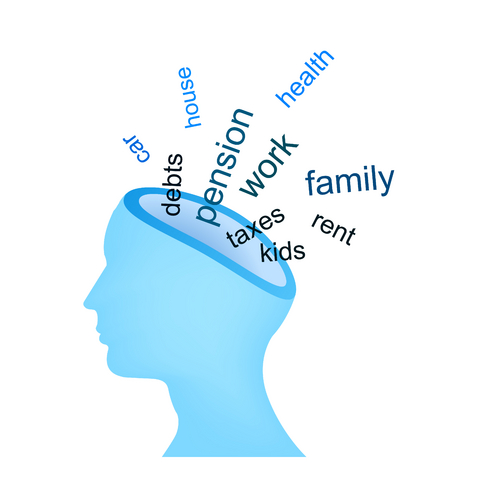Even though this post is written with nurses and healthcare professional in mind, its content may be valuable for anyone who reads it. Give it a read and see. Let me know whether it works for you, regardless of what profession you’re in. Enjoy!
Why Meditation Works for Nurses
I created this site for my book, Minding the Bedside: Nursing from the Heart of the Awakened Mind, which was written primarily for nurses. However, since publishing it, many, many non-nurses and non-healthcare professionals have bought the book and have benefited from it.
The following post is dedicated to meditation for nurses and how meditation can help nurses to bring more compassion to the bedside.
Meditating with a Compassionate Presence in Mind
What is nursing (or anything) from the heart of the awakened mind? It’s being able to show up for others compassionately, based on compassion that arises from a mind that’s well trained.
The compassion that you’re used to may be dependent upon your likes or dislikes of certain people or groups of people. Your compassion may disappear when you encounter someone who rubs you the wrong way or who has no particular affection towards you. However, the compassion that you find when you learn to meditate is different.
When you deepen your meditation practice you gradually come to find a state of mind that wishes for others the inner peace and contentment that you’ve found within your meditation. And while maintaining this kind of meditation may not be easy, every moment that you spend training your mind brings you greater ease is accessing this inner peace and contentment.
Learning to be compassionate is about learning to be kind…to yourself
The compassion that we strive for isn’t just for others, it’s not just for those who we care for or even those who we live with. We need to be compassionate with ourselves.
In a book that I quote frequently on this site, Christian Meditation: Experiencing the Presence of God, author James Finley writes:
Our feelings of impatience and frustration with ourselves in meditation are certainly understandable, especially when they persist in spite of our best efforts to overcome them. But as we sit in meditation we can begin to recognize the subtle violence inherent in our impatience with ourselves. As our awareness and understanding of our limitations in meditation continue to deepen, we begin to gain greater insight into what is happening. We realize we are catching ourselves in the act of perpetuating violence towards our wandering mind, our wayward will, or our sleepiness—in short, toward those very aspects of our self that need to be loved the most. We realize that to stop meditating simply because we feel we are not good at it amounts to abandoning the very aspects of our self that need patience and loving encouragement. We see that the whole venture in meditation is going to be a rough ride unless we can learn not to invade and abandon ourselves in response to all the ways in which meditation exposes our limitations and shortcomings. It is precisely at this point that we begin to appreciate the liberating power of compassion.
The meditation that we want to cultivate as health-care professionals has to be based on the goal of alleviating others’ suffering through changing the way that our mind works, becoming mindfully aware ourselves. And, to do so, we must first learn to be compassionate with ourselves.
When meditating on compassion, see others as “another you”
As health-care professionals, our reasons for helping another may vary from the means of providing a paycheck for our family to a deep inner belief that our mission in life is to serve the sick. It’s not always due to compassion.
The compassion that comes from learning to develop a mindful presence is based on realizing that the person in front of you is no other than “another you,” another human who wishes to have happiness and to avoid suffering.
The compassion that you bring to your patients is due to the realization that your patients suffer due to the very same mind “dynamics” that you encounter as you begin to practice being mindfully aware.
Profoundly, the only difference between your patients and you is that they’re the “patient” and you aren’t. In fact, at some point in our lives, many of us end up as patients and find out what it’s like to be there!
Compassion is the heart of meditation
Why do we say that compassion is the heart of meditation? At its heart, meditation is about becoming more of who you really are. And when you begin to find who you are, you find an unlimited wellspring of compassion based on a presence that is mindful, aware, and spacious. This is the heart of the awakened mind, this is the heart of meditation, where compassion in its unlimited form, resides.
The realization of the fact that others suffer just as you do, and that much of that suffering comes from an untrained mind, should be the basis of your meditation.
As you progress in your practice, gradually it becomes clear that much of your own suffering as well as the suffering of others comes from an untamed mind. And as you come to find peace within your mind, you’ll wish to help others to do the same. That’s compassion, based upon a mind that is clear and present.
To support you in your practice, I’ve posted below a script for an exercise in compassionate intention.
EXERCISE – TRAINING IN A COMPASSIONATE IMPULSE
Please feel free to share your comments. Is this post helpful? Does it work? Doesn’t it work? Let me and others know whether you find this post helpful. And, as always, please feel free to contact me if you’d like to see additional content or other discussions on this site. For more information on how to meditate, exercises in working with the breath, and other nifty stuff, please see the Related Posts below.
Also, don’t forget to download the free ebook, Can Meditation Change the Way that You View Your World?, for help with getting started in you meditation practice. Also, you can download the ebook, How to Work with the Four Distractions to Meditation.
Also, please check out the blog drop-down menu for compassion in the navigation bar at the top of this page.
_______________________________________________________________________________________
[i] Finley, James. Christian Meditation: Experiencing the Presence of God. San Francisco: Harper, 2004, pg. 279.






Leave A Comment